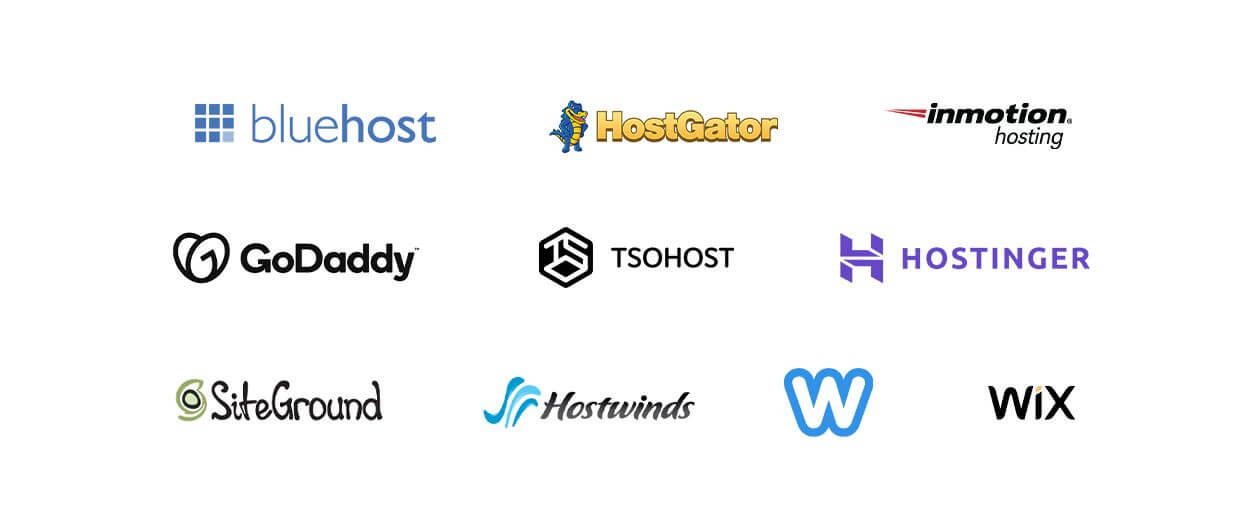Europe’s in the news again.
OpenAI, the latest tech darling, might fully remove operations in Europe following the ratification of the EU AI law. Meta has just been fined €1.2BN – the largest ever – for violating GDPR. New acts such as the Digital Market Act, which regulates the activity of search engines and social media platforms, are opening up new avenues for big tech corporations in the United States to stumble over – and we’re still in the first few months of 2023.
If it feels like a lot of things have changed about the idea of Europe: it has.
When the European Union was founded way back in 1993, the internet was just fifty separate web pages and about ten years old. Flash forward thirty years later, and we have roughly 1.13 billion active websites, only 18% of which are active. We have countless social media platforms with users tuning in every day to communicate with others. The technology we are used to now has become more complex, more capable, and more nuanced.
But in the forward march towards profit and innovation, other things such as privacy were slowly eroded by companies looking to squeeze the last little bit of important information out of their product.
As a result, the world wide web now has a significant additional function: as a money-making entity that is intrinsically designed as the infrastructure for a global market. While it still works as an information highway, as a connecting point, as a bridge between countries, the internet remains a marketplace where the cost of participation turns out to be a little bit of user privacy. A price that seems to have been accepted by the market as it crept up on us – slowly at first and then accelerating as the world became more connected.
However, the European Union has put forward laws that actively prevent this from happening, and as a result, the very landscape of Europe and tech is changing.
Here’s how the future of Europe might work:

A shift away from Silicon Valley
In the beginning, there was Silicon Valley.
With fantastically easy access to Stanford University graduates, computer firms, semiconductor companies, and a heap of industrial and residential spaces going cheap, Silicon Valley grew as the unfettered hub of technological innovation from about the early 70s onwards. The internet started out there, as ARPANET; the idea of venture capital took place on Sand Hill Road.
Tech, and Silicon Valley, are intrinsically tied together, and will be.
But the European Union’s stringent data regulation laws have been one of the claws that’s hooked Silicon Valley from growing further. The global recession, collapse of Silicon Valley Bank, and the widening gap between what organisations want to do and the pushback from a user-base progressively more concerned with their own privacy are other matters that are concerning for Silicon Valley’s continued growth.
However, it doesn’t change the fact that EU regulations and Silicon Valley practices no longer mesh.
What this means is: tech companies will still exist, but their base might shift to Europe.
We’ve already seen a lot of this over the years. Revolut, one of the biggest financial service companies with over 330 million transactions a month, is based in the United Kingdom. Bolt, a rideshare service competing with the likes of Uber, is in Estonia, Tallinn. Vinted is a Lithuanian startup with a 40% share of the European second-hand market. Hello Fresh, a German recipe box startup, eclipsed U.S.-founded Blue Apron within three years of it entering the United States.
There’s more.
Think of Mastodon, Germany, which hasn’t caught on yet, but which is poised to become a serious contender to the social media platforms that we have available – particularly with the troubles that Twitter is facing. Think of Evernote, a Silicon Valley staple that is now being run by Italian company Bending Spoons. Proton, an encrypted mail service with servers in Switzerland, can become a Google competitor if the current EU direction is anything to go by.
European companies are eminently attractive for several reasons, but primarily: they adhere to laws that are actively looking out for the consumer.
For over a decade, we’ve heard about the way tech giants are fine with sacrificing customer privacy in exchange for revenue. To have laws in place that protect against this ties into a growing trend for even more protective measures, with ⅔ of global consumers believing that tech companies hold too much control over their personal data.

Does this mean that Silicon Valley will no longer be relevant?
Absolutely not. Silicon Valley has a history of ups and downs: if anything, this is only a blip in its current iteration.
What needs to be highly identified is that the world we live in is constantly shrinking. Any tech that is created will invariably go global: the nature of the internet as we know it is that if any one place has developed something that looks interesting, other countries will pick up and plan out their own version of the same.
Silicon Valley will always be a technology hub, and will still put out innovative creations – but it will no longer be performing this in isolation. Several cities in Europe already have the infrastructure to become smaller Silicon Valleys, and with the tech world becoming smaller – partially due to layoffs, partially due to laws, and partially due to the recession – there will likely be less of a divide between tech made in the United States and tech created in Europe.
What we can see as a potential hurdle is that tech created in Europe will be held to a different standard to tech created in the United States, and this will be a potential area where communication between agencies becomes vital.

What about companies who own multiple products?
Famously, the EU isn’t a fan of monopolies – and mergers which give an already-sizeable tech company an unfair advantage over its competitors have already attracted negative attention in Europe. Any company favouring its own product without the opportunity for competition will run the gamut of European law, which puts pressure on tech companies to choose their acquisitions wisely.
In theory, this approach is supposed to create a much fairer environment overall, and it’s something that’s currently lacking. It should also limit the control that companies hold over consumers, allowing them to pick and choose the elements that they wish to support without being tied into an expensive and unnecessary ecosystem that locks them out of other things.
For example, take Apple. Apple is notorious for keeping users embedded within the iOS ecosystem, however new laws in Europe could mean that users who want to use third-party apps outside of their app store now have the opportunity to do so.
In short, it is working towards a tech environment that looks out for the consumer.

How will this affect the world in the long run?
If we’re looking at several European technology hubs coming into their own in the next few years, then a few things are certain for sure.
The dissemination of data is going to be a considerable challenge for several industries: we’re already operating with a fragmented data landscape, and further fragmentation is on the way. For those companies relying on third party data, this will be the final straw that pushes them into collecting first party data for their own use.
Stricter control over what these corporations can do to their consumers is another key aspect to keep in mind. At the moment, tech companies in the United States are still running on the borrowed currency of being the first on the scene, but that goodwill is rapidly running out, and we’re likely to see a complete change of attitude by the end of the decade. The reason that these corporations have been able to do so much for so long is the unprecedented amount of data that they were working with seemingly ballooned overnight, and laws took years to catch up, by which point the damage had already been done. The EU is imposing fines on US tech companies in an attempt to curb what it considers anti-consumer behaviour. If these fines grow in scale, or if the EU resorts to more drastic measures, this will accelerate the rate at which tech moves away from the US.

What does this mean for Europe?
It means growth. It means a greater connection between European countries who – equivocally – have a lot less to work with than the United States. It means more data, but more nuanced data that caters to specific countries. It means that the idea of a global village might change from the way we’ve been thinking of it. It means that marketers will have to learn to cater their approaches to specific companies.
It means opportunity for greater collaboration.
What it doesn’t mean is that corporations in the United States will be wholesale chased out of Europe, but they might set up hubs in the European Union to try and adhere to the same laws that govern the continent. This is prosperity for those countries, and a chance to work far more closely with each other.

What does this mean for businesses?
Businesses have to adapt to a new environment – but this is nothing new. Businesses have been adapting to new environments ever since the very first notion of a ‘business’.
There is a choice to be made here that will determine the way businesses could function, and there’s one of two paths available.
For businesses who want to widen their scope and create a cross-border organisation, the name of the game is going to be collaborations. Unless they’re a massive corporation which can afford setting up two distinctive operations, one in the United States and one in Europe, it’s likely that collaborations will be the way forward for organisations looking to cater to both audiences across the water.
If those organisations prefer to focus, then the choice is clear: focusing on US services, and therefore using US organisations, or focusing on Europe.

Is it likely that big corporations such as Google and Meta will pull out of Europe?
No.
Google and Meta are global corporations: fines notwithstanding, they get a significant amount of business in Europe – more than enough to make setting up European hubs a far more attractive prospect than it is to just fully draw away from Europe.
As a result, if you’re using several of Google’s services, those might not really experience any interruption.
That said, that only covers technology that has been in Europe for decades. New technologies – such as Google’s BARD, which isn’t available in Europe, but is available in over 180 countries outside of the EU – might just never come to Europe from those tech giants to start with. Google hasn’t said why, but the speculation is that it could be a power move to try forcing the EU’s hand on legislation.
On the one hand, this could potentially put millions of EU-based businesses at a disadvantage if they don’t have access to the same tools as the rest of the world. On the other hand, it could be a blessing in disguise.
In theory, it should lead to a much better playing field to work with. European-led Google derivatives are at the right position to start cultivating their audiences from now. This will have them at the ready for the period of unrest that will come once Europe strengthens its resolve against the way the United States deals with privacy and consumer rights.
Upheaval is coming. Setting up European hubs for American businesses is a process that will take time, and will bring its own set of logistical problems. Although Google has superior market share at the moment, if new laws affecting the use of that data are put into place, smaller companies may be priced out of using Google to start with – and will look for alternatives closer to home and with less of a financial risk.

Are there any opportunities for European-led companies right now?
There’s an opportunity to start building a customer base from now.
Consumers know that their data has been for sale for a very long time, and their dissatisfaction with that just keeps getting stronger.
Companies set up in Europe – which are prone to stricter regulations to start with – have a golden opportunity to position themselves as the anti-Google, the anti-Meta, the anti-exploitation tech company that is based far closer to home and, potentially, with a better understanding of local audiences.
This doesn’t change the fact that bigger corporations have a much better chance of attaining business than smaller ones – but it’s not the only chance. Smaller companies positioning themselves on the side of user rights might be surprised at how dedicated businesses are to doing the right thing, if only for greater profits than any other reason.

Should I, as a business, look at alternatives to grow?
Using alternatives to grow your business is a risky strategy with a high payoff. It can work – but it might be difficult to see the benefit of it this early in the game.
Remember: these big tech companies are big for a reason. They’ve had years and years and years to acquire a lot of data that is now forming the basis for several of the KPIs that businesses chase after. Pivoting from that into European or smaller alternatives is not an easy, or small, decision to make.
However, the benefits are undoubtedly high.
This boils down to what you want your business’ legacy to be. It boils down to whether your business can sustain itself if it opts for the smaller, niche company over the larger corporates that knows every member of its audiences. It boils down to whether you are in a position to take a slower growth period over a faster, though riskier, rise.
Here’s our take on it: at this stage, it’s early. It’s unlikely that you’ll be able to fully divest your business from the stranglehold that tech giants like Google and Meta have on the industry – but it doesn’t mean you have to be locked into those systems forever. Keeping an eye out, and moving small aspects away from the overall United States tech ecosystem, is a sustainable choice.
As these companies grow, then you can move more of your business away from that ecosystem.
But it won’t be a quick process. This is a game for the long-haul.

What about web hosting?
It’s a similar issue.
You can use the bigger companies. You can also decide to branch out.
Websites are still a massively important part of having a business, but it’s one small aspect of your business that you can use as a testing ground for whether a smaller host would work for you, and whether you can start pulling away from the established tech ecosystem into something that might be more fine-tuned for your audiences – or, at the very least, might give you a better chance of connecting with your audiences in a way that matters to them fundamentally: with regards to their privacy, safety, and data.

Is there anything else I need to keep in mind?
These are early predictions, so the landscape might fully change by this time next month – but it’s unlikely.
The European tech expansion isn’t just an individual effort set up by companies scattered throughout the continent: it’s an actual bolstered effort championed by the European Union itself, looking into creating its own tech hub the same as Silicon Valley, just on a much smaller scale. Its startup culture has taken a lot to get into its own, but now that it’s here, it won’t slow down.
The choice for how this impacts your business is yours.
What we can say is this: keep an eye on the news. The fines are just the beginning of an overhaul in the way that tech corporations will function, and while it’s unlikely that they’re going to cease European operations, their power may become limited – and your business might benefit from working with corporations closer to home.
But it’s not happening yet. You have a lot of time to think about what this means for you – and to identify what kind of business you want to run in the future.




